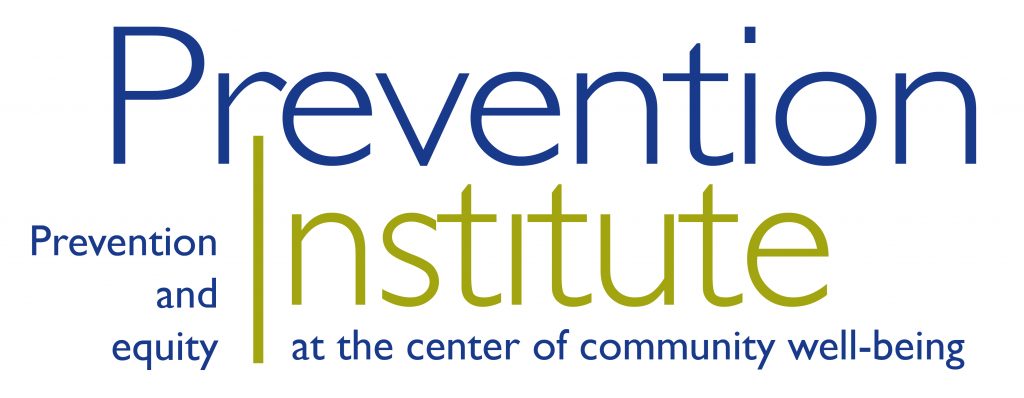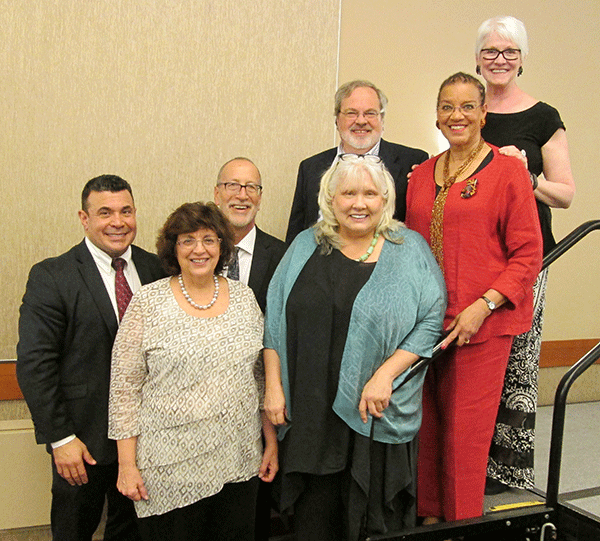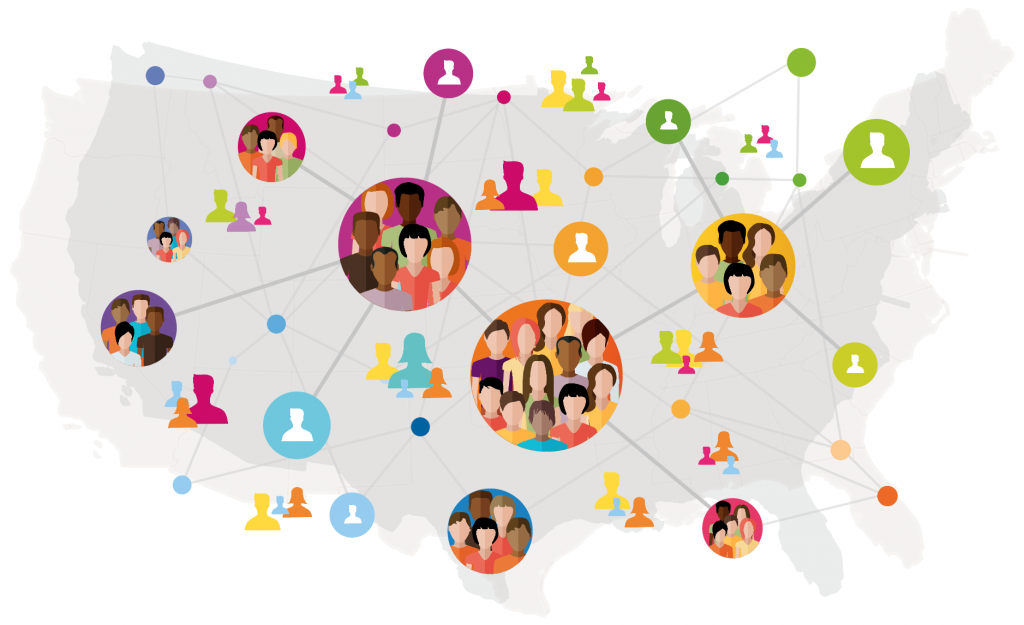APRIL 6 – 8, 2016 | SAN DIEGO, CA
Summit 2016 addresses population health leadership for Building Healthier Communities through interactive exploration of population health knowledge, practices, measurements, and skills. You will be an active participant in shaping the future of our field by identifying cutting-edge behavioral health leadership roles within collaborative population health strategies. In addition, participants will explore current movements in population health and the implications for behavioral health; examine the intersections of health equity, social justice, and the social determinants of health; understand ways that population health is financed, assessed, and measured; and learn fromplace-based initiatives promoting healthy, equitable communities.
SUMMIT SCHEDULE

Summit begins at 9:00 a.m. Wednesday, April 6, 2016 and ends on Friday, April 8, 2016 at 12:00 p.m. A detailed schedule is available as a PDF download from this link.
The College is pleased to have Prevention Institute co-hosting the 2016 Summit. Prevention Institute is a non-profit, national center dedicated to improving community health and wellbeing by building momentum for effective primary prevention. Primary prevention means taking action to build resilience and prevent problems before they occur. Prevention strategies can be effective in preventing, and reducing severity of some mental health conditions, such as depression and post-traumatic stress disorder. Further, good prevention strategies can delay onset and support treatment outcomes for those with mental health conditions. The Institute’s work is characterized by a strong commitment to community participation and promotion of equitable health outcomes among all social and economic groups.
Presenter Materials
Presenter slide decks and other materials shared will be posted to the web site as they are available. Material should be considered the property of the presenter and its further use should be by request of the individual who produced the material.
- Tackling the Root Causes of Health Inequity. Anthony Iton, MD, JD, MPH, California Endowment.
- Health Equity Video (from Dr. Iton’s presentation)
- Live Well San Diego, Dale Fleming, County of San Diego Health and Human Services
- Promoting Health Equity and Social Justice Through Addressing Social Determinants, Health Inequities. Sheila Savannah, MA, Prevention Institute.
- Leading a Paradigm Shift: Opportunities and Skills for Linking Behavioral Health and Population Health. Larry Cohen, MSW, Prevention Institute, and Lynda Frost, JD, PhD, Hogg Foundation for Mental Health.
- Health Share’s Collective Prevention Strategy: Promoting Early Life Health. Maggie Bennington-Davis, MD, Health Share of Oregon.
Conversation Infographs
Keynote presentations and discussion group conversations were captured through the creation of infographs, which can be viewed from the links below. Each infograph may be viewed as a single image or as a presentation. Copies of the infographs as images may be obtained by contacting the office.
- Behavioral Health: A Parter in Building Healthy People and Communities (Iton Address)
- Leading a Paradigm Shift (Cohen and Frost Address)
Health Equity and Social Justice Conversation Breakouts
- Prevention Group #1
- Prevention Group #2
- Clinical Practice Group #1
- Clinical Practice Group #2
Leadership Conversation Breakouts
- Group A
- Group B
- Group C
- Group E
- Group F
Alfredo Aguirre, PhD, Behavioral
Health Director, San Diego County Health
and Human Services Agency
Maggie Bennington-Davis, MD
Chief Medical Officer, Health Share Oregon
Larry Cohen, MSW, Founder and
Executive Director, Prevention Institute
Larissa Estes, DrPH, Program
Manager, Prevention Institute
Lynda Frost, PhD, Director of Planning
and Programs, The Hogg Foundation
for Mental Health
Anthony Iton, MD, JD, MPH, Senior VP
for Healthy Communities, California Endowment
Ray King, MBA, MPA, President/CEO
Urban League of San Diego
Gregory Knoll, Esq., Executive Director/
Chief Counsel, Legal Aid Society of San Diego, Inc.
Nick Macchione, FACHE, Director
San Diego County Health and Human Services Agency
Sheila Savannah, MA
Director, Prevention Institute
Marvin J. Southard, MSW, Mental Health
Director Emeritus, County of Los Angeles
Department of Mental Health

The College for Behavioral Health Leadership honored outstanding colleagues during its Summit in San Diego, CA on April 7, 2016. Board President Dr. Leigh Steiner noted, “Our 2016 awards really represent the best of what the College is all about – individuals who have life times of leading innovation in an ever changing health care environment and who are aware of their critical role as mentor for emerging leaders in the field. We are delighted to be able to honor each of them.”
The Saul Feldman Award, honoring the lifetime achievement and contributions of an individual to leadership and policy in the mental health and addictions recovery field, including contributions to the knowledge base, was presented to Katherine O. Sterbach, MBA, MEd.
Kathy is a Partner with TriWest Group and a health and human services consultant with over 35 years of experience. Ms. Sternbach consults to state and county health and human service agencies and provider organizations, specializing in the design, implementation, and evaluation of human services systems with emphasis on Medicaid managed care and health reform. She has conducted formal evaluations, quality reviews, and special studies in over 20 states and has extensive experience with managed care capacity development, organizational assessments and mergers, and implementation of consent agreements. She assists provider organizations with addressing the opportunities under health reform. Kathy is most interested in helping systems of care create and implement standards that improve the overall health and lives of people with behavioral health conditions.
One of her proudest accomplishments was helping a state to host a “Speak Out” with peer leader Judy Chamberlin in the early 1990s for people with behavioral health conditions to tell senior state leaders about their strengths and needs from the “system.” That experience was pivotal to important system changes empowering several peer-run organizations and has deeply influenced her career.
The Walter Barton Member Award, honoring an individual who has made outstanding contributions and exceptional service to the College and his/her focus on supporting the mission and work of the College, was presented to Allen Daniels, EdD.
Dr. Daniels is an independent behavioral healthcare consultant and also serves as Senior Study Director for Westat and consulting Clinical Director for InfoMC. He has been Professor of Clinical Psychiatry and Public Health Sciences at the University of Cincinnati, College of Medicine. He has also served as the Executive Vice President and Director of Scientific Affairs for the Depression and Bipolar Support Alliance (DBSA). Allen has comprehensive experience in behavioral health care leading both public and private clinical practices, managed behavioral healthcare programs, and as an active advocate for person-centered care and Peer Support Services. He has extensively published in the area of behavioral health policy including: managed care and group practice operations, quality improvement and clinical outcomes, behavioral healthcare workforce development, behavioral health and primary care integration, and peer support and person-centered care. Dr. Daniels served on the National Advisory Committee for SAMHSA’s Center for Mental Health Services. He is active on a number of other boards and professional organizations.
The King Davis Award for Leadership in Promoting Diversity and Reducing Disparities, given to recognize leaders who have made significant contributions in promoting diversity or reducing disparities through their work in the areas of behavioral health services, research, advocacy, or policy, was presented to Vivian Jackson, PhD, ACSW, LICSW.
Dr. Jackson is adjunct faculty with the National Center for Cultural Competence, Georgetown University Center for Child and Human Development and the National Technical Assistance Center for Children’s Mental Health. She is a social worker with more than 40 years of experience as a practitioner, supervisor, manager and trainer in health, mental health, substance abuse, child welfare, managed care, system reform and cultural competency. Former positions include Director, Office of Policy and Practice, National Association of Social Workers and Child Welfare Advisor, National Resource Network for Children’s Mental Health at the Washington Business Group on Health. Her publications include, “Cultural and Linguistic Competence in Residential Programs: Why, What, and How” in Residential Interventions for Children, Adolescents, and Families, “Cultural and Linguistic Competence and Eliminating Disparities,” in The System of Care Handbook and “Resilience for Leaders in Times of Change” in The Leadership Equation: Strategies for Individuals who are Champions for Children, Youth & Families.
Dr. Jackson served as a member of the National Association of Social Workers’ National Committee on Racial and Ethnic Diversity and the NASW’s Presidential Diversity Task Force where she was instrumental in the development of Indicators for the NASW Standards for Cultural Competence in the Social Work Profession and Institutional Racism and the Social Work Profession: A Call for Action. She is currently a member of the Board for the National Leadership Council for African American Behavioral Health and co-chairs the Diversity Interest Group for The College for Behavioral Health Leadership.
The Timothy J. Coakley Behavioral Health Leadership Award honors behavioral health leadership by consumers of mental health and addictions services and leadership by families who have members with addictions and mental health problems and was presented to Susan Bergeson.
The award honors consumer and family leaders in the behavioral health field whose work is characterized by the highest degree of integrity and a passion for creative approaches for improving the lives of mentally disabled persons, especially in the public sector. Ms. Bergeson is a recognized leader and contributor to the consumer and peer/family support field. She has been the Executive Director of the Depression and Bipolar Support Alliance (DBSA), a consumer run organization that provides extensive training and certification of peer support specialists and a network of national support groups for individuals with mood disorders. She has also been a leader in the Pillars of Peer Support initiatives. Since moving to Optum, Sue has been a tireless advocate for the roles of peer support specialists in managed care provider systems and networks. She has helped develop and disseminate technical assistance resources for peer-led organizations to help them prepare and engage with managed care companies for funding their programs. As a College member, Ms. Bergeson has advocated for the role of peers within the organization. This has included helping to secure funding and develop programming specifically focused on the peer community. She was the first consumer to chair an ACMHA/College Summit and her leadership helped conceptualize and support the development of the College’s E-Guide on Healthy Behavior Change.
The Innovation Leader Award honors the work of an individual or organization that is demonstrating leadership and innovation in the evolution of health and was presented to Live Well San Diego, accepted by Nick Macchione and Alfredo Aguirre.
Moving beyond innovations of the early 21st century, the College honors the work of leaders creating collective actions across sectors to design a health system that is authentically holistic, innovative, and powerful enough to reduce health disparities and move to well-being. After two years of collaborative planning sessions among county staff and community stakeholders, the County of San Diego Board of Supervisors adopted a comprehensive, long-term initiative on health called?Building Better Health: Health Strategy Agenda.? The decision was sparked by the realization that San Diego County, like much of the nation, was facing a tidal wave of chronic disease and rising healthcare costs.?The original agenda has since evolved into the greater Live Well San Diego vision to improve the health, safety and well-being of all County residents.


